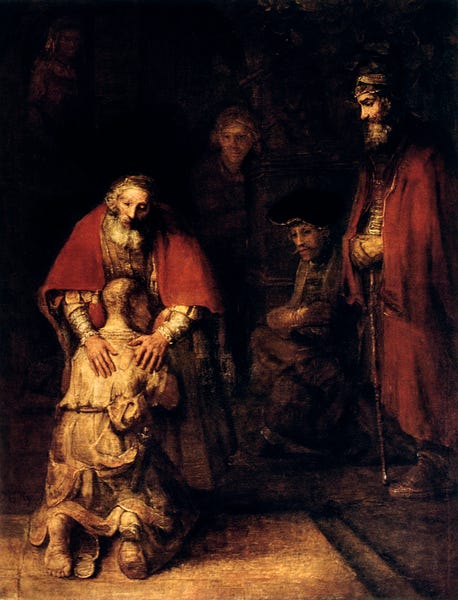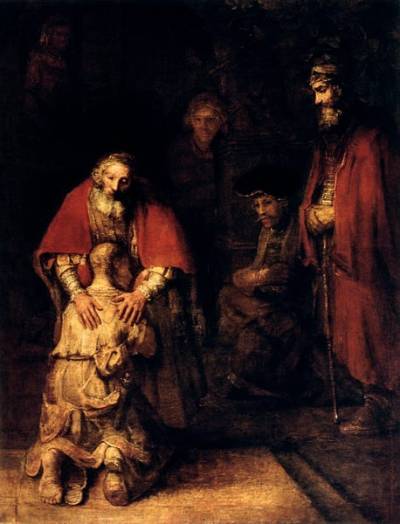There’s a saying that’s common in the online world. We’ll watch someone have a very public meltdown—or we’ll watch someone exhibit brazen hypocrisy—and critics will sneer, “Trump broke him.” It’s a mocking way of saying that their anger got the best of them or that their anxiety turned into unseemly public panic. A mainly-partisan segment of the public seems to enjoy these spectacles. They like watching people fail.
And make no mistake, the evidence of failure abounds. People are, in fact, breaking. They are breaking all around us.
The longer I live, the more I realize that we simply don’t know who we truly are until we’re tested. We can vocalize our beliefs all day long, but when living those beliefs is hard—when upholding our principles carries a cost—that’s when we learn what we truly value.
Soldiers are familiar with this concept. There’s an old war movie trope of the soldier who brags about his bravery and then fails in combat, while the quiet, humble man demonstrates steel in his spine. But the trope is based in some truth. There is in fact often a gap between a man’s rhetoric in his barracks and the reality of his actions under fire.
If a person believes himself or herself to be brave, until that bravery is tested there is but one accurate response—we’ll see.
Other examples abound. How many millions of couples have sworn fidelity to each other (and before God) only to see that commitment crumble in the face of marital conflict or simple, direct temptation?
If a person believes himself or herself to be faithful, until that fidelity is tested there is but one accurate response—we’ll see.
We can do this with every virtue. Are you truthful? We’ll see. Are you kind? We’ll see. Easy virtue is hardly virtue at all. As C.S. Lewis wrote in The Screwtape Letters, “Courage is not simply one of the virtues but the form of every virtue at the testing point.”
If I had to summarize the last four years in a single phrase, it would be simple—it’s been a time of testing. This time of testing has broken us and divided us. It’s divided us between those who are honest and those who lie, the cruel and the kind, the principled and the hypocrites, between the courageous and the cowardly.
And make no mistake, this is not a matter of left and right—or of Trump and anti-Trump. I’ve opposed Trump since the start, but I don’t think for a moment that the #Resistance has cornered the market on virtue. The stress and rage of the last four years has ruined lives and wrecked reputations on all sides of the political aisle.
In fact, there are ways in which the principal sins of the last four years are partisan mirror images of one another. I’ve seen conservative Christians commit or rationalize grievous sins in the pursuit of virtuous causes, and I’ve seen their opponents engage in terrible wrongs in their quest to defeat an unfit and cruel man.
Not every person has failed every test, of course. As we’ve learned who people really are—as their values have been put to extreme tests—there are those who’ve withstood the storm. They’ve exhibited great virtue at great cost. I wrote about this remnant in the final chapter of my book, Divided We Fall.
In the biblical narrative, those who weather these storms are often referred to as a remnant. I love that word, “remnant” (and I’m jealous that my friend and colleague Jonah Goldberg thought of it as the name for his podcast). It’s a word with a rich theological heritage, harking back to Elijah’s lament to God in the time when the false god Baal dominated Israelite life and Elijah feared the sword of the king.
In an encounter with God, Elijah declared himself to be “the only one left” in service to the Lord. But God contradicted him, declaring that he had reserved “seven thousand in Israel—all whose knees have not bowed down to Baal and whose mouths have not kissed him.” Time and time again in biblical history the people of God are reduced to nothing but the smallest of remnants. How many people followed Jesus to the foot of the cross? Even after the Resurrection, the Book of Acts describes the sum total of believers as numbering around 120.
The word “remnant” carries with it the unmistakable pain of loss. It’s the surviving portion of the larger whole. But, critically, the remnant also represents the seed of renewal.
But the critical truth is that a nation or a church heals not through the virtue of that remnant, as admirable as it may be. The remnant might represent a foundation, but the repentant truly powered the church. That’s how our church heals. That’s how our nation heals. Not so much by exalting the righteous and giving them their due, but by embracing the repentant and forgiving them with joy.
One of the most powerful and mysterious realities of scripture is that Christ built his church on Peter, “the rock,” a man who wasn’t in that original remnant. He betrayed Jesus in the moment of ultimate distress. In his time of testing, Peter learned that he was a coward. Yet Peter repented, Jesus forgave him, and Peter did in fact build Christ’s church, following Him unto death.
But repentance carries with it a corresponding obligation—forgiveness. And membership in the remnant can carry with it the temptation of self-righteousness. Consider the parable of the prodigal son.
A young brother seeks his inheritance from his father, leaving his older brother to serve his father and work in the fields. The younger brother takes his wealth and indulges his worst impulses, and his depravity predictably ruins him. He returns, hat in hand, to his father and says, “Father, I have sinned against heaven and before you. I am no longer worthy to be called your son.”
Does the father punish him? Does the father scold him? No, the father welcomes him home. He rejoices, “For this my son was dead, and is alive again; he was lost, and is found.”
In that moment, the older brother is a version of the remnant. He’s been faithful. But he falters. He can’t match his father’s joy. He’s angry. He says to his father, “Look, these many years I have served you, and I never disobeyed your command, yet you never gave me a young goat, that I might celebrate with my friends. But when this son of yours came, who has devoured your property with prostitutes, you killed the fattened calf for him!”
The brother’s virtue had its limits. At that moment, he could not forgive. He wanted the celebration. He wanted the tribute.
If the church is going to move past this present division—and if our culture is going to knit back together—the prodigal sons will have to return. Person by person, in relationship by relationship, the people who broke, who failed, and who sinned will have to repent of their wrongs (the “never apologize” ethos of the new, angry right may ultimately be its most destructive legacy). But the remnant will have to make its own choice. Choose the father’s path and heal our land. Choose the older brother’s path, and we are lost.
There are men and women in this age who’ve proven they’ll tell the truth when the truth is hard to tell. They’ve demonstrated their kindness in a cruel age. Time and again they resisted the urge to indulge in evil means to achieve virtuous ends. But God willing there is another test to come.
If the prodigals come home, can the remnant forgive? We’ll see.
One more thing…
I’m truly excited to host my good friend Russell Moore, president of the Ethics and Religious Liberty Commission of the Southern Baptist Convention, at our What’s Next online event, scheduled for November 9th and 10th. We’ll be talking about what’s next for American Evangelicals. You can register here.
One last thing…
I know there are those who think this nation is too far gone for redemption. The cruelty of the age has broken us beyond repair. Our divisions are too deep. This is false. This song, in this place, demonstrates a profound truth—there is no chain that can’t be broken:
Photo by © Historical Picture Archive/CORBIS/Corbis via Getty Images.







Please note that we at The Dispatch hold ourselves, our work, and our commenters to a higher standard than other places on the internet. We welcome comments that foster genuine debate or discussion—including comments critical of us or our work—but responses that include ad hominem attacks on fellow Dispatch members or are intended to stoke fear and anger may be moderated.
With your membership, you only have the ability to comment on The Morning Dispatch articles. Consider upgrading to join the conversation everywhere.